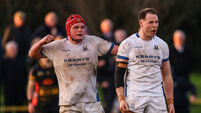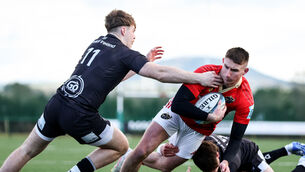Dave Alred stresses lack of kicking basics in rugby

The Bristol-based coach, who was voted among the world’s top five practitioners, flew from Australia to Ireland for the weekend, only to head back Down Under, via Portugal.
Even his goal when not lecturing at Setanta College’s coaching conference in Thurles was to find the ‘Tipperary: You’ve come a long way’ sign to prove that very fact.












